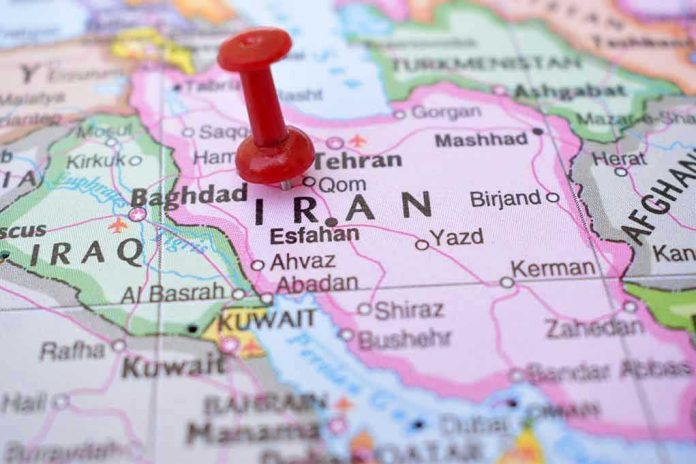
Iran’s alleged kidnapping plot against a Belgian lawmaker raises alarms about Tehran’s growing threat to security in the West.
Story Overview
- Iran accused of planning to kidnap Belgian lawmaker Darya Safai.
- Western governments warn of increasing Iranian threats.
- Part of a broader pattern of targeting diaspora dissidents.
- Escalation in diplomatic tensions between Iran and the West.
Iran’s Extraterritorial Operations
Reports indicate that Iran’s intelligence apparatus, including the Ministry of Intelligence (MOIS) and the Islamic Revolutionary Guard Corps (IRGC), has been involved in targeting dissidents abroad since the 1979 Islamic Revolution. This includes high-profile assassinations and abductions in Europe and the Middle East. The recent warning to Darya Safai is part of a documented pattern of Iranian state activity aimed at silencing critics and projecting power internationally.
Historically, incidents such as the Mykonos restaurant assassinations in Berlin in 1992 and the foiled bomb plot against an Iranian opposition rally in France in 2018 have highlighted the regime’s persistence in using extraterritorial repression. The 2021 US indictment of Iranian agents for plotting to kidnap journalist Masih Alinejad in New York further underscores this ongoing threat.
Western Governments Respond
The disclosure of the kidnapping plot against Safai has prompted heightened security measures for Iranian-origin lawmakers and activists in Europe. Western governments, including the US, have issued coordinated warnings about Iranian threats, emphasizing the need to protect residents and uphold the rule of law. Belgian authorities have confirmed the threat and are actively investigating the situation.
Diplomatic tensions continue to rise, with potential new sanctions against Iran being considered. The implications are significant, as these actions could lead to further strain in diplomatic and economic relations between Iran and the West, affecting both governmental and civilian spheres.
Impact on the Iranian Diaspora
The Iranian diaspora, particularly those involved in activism and politics, faces increased risks as Tehran intensifies its extraterritorial operations. This has led to a chilling effect on free expression and political participation among diaspora communities, who now operate under the constant threat of state-sponsored repression. Security analysts note that Iran’s actions are becoming more sophisticated and bold, raising concerns about the safety of dissidents worldwide.
The broader civil society, invested in human rights and the rule of law, is also affected. The ongoing situation highlights the importance of coordinated international responses to deter future plots and protect vulnerable communities. Legal experts debate the adequacy of existing international law and diplomatic protocols in addressing these challenges.
Future Implications
Short-term implications include increased security measures and diplomatic pressure on Iran. In the long term, there may be an erosion of trust between Iran and Western countries, leading to stricter visa and diplomatic protocols. The situation also serves as a crucial reminder of the need for robust counterintelligence and protective services to safeguard the interests of both nations and individuals.
The developments surrounding Darya Safai’s case highlight the pressing need for a unified and comprehensive approach to countering state-sponsored extraterritorial repression. As Western governments and security services continue to collaborate, the hope is to deter future threats and ensure the safety of those targeted by such operations.
Sources:
Wikipedia – Nuclear Program of Iran
BASIC – US and Israeli Strikes on Iran: A Timeline of Iran’s Nuclear Programme
Arms Control Association – Timeline of Nuclear Diplomacy With Iran, 1967-2023
Iran Watch – A History of Iran’s Nuclear Program










